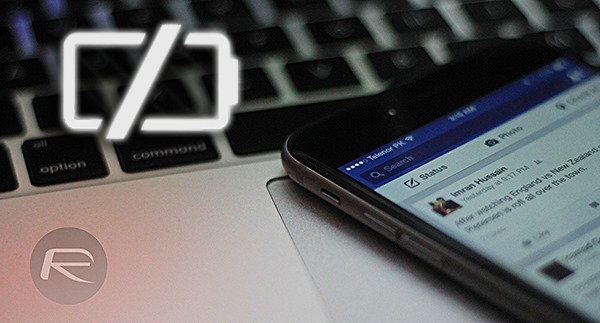Facebook’s official app is among the most used apps on any mobile platform today, and it is no surprise that it contributes to a major portion of the on-screen time on our phones and tablets. While Facebook app using some of the battery is understandable given the complexity of the social network and the fact it’s used a lot, but a major battery drain is unacceptable for obvious reasons. This has been the case for over a week for most iOS users, be it on iPhone or on iPad, and such has been the criticism that after initially acknowledging the issue last week, Facebook has now released an app update to fix the problem.
Those experiencing this unusual battery drain could tell, thanks to the battery analytics in iOS 9, that the app was running in the background for quite a few hours, in some cases almost double the on-screen time of the app. All of this was transpiring despite users having turned off the Background App Refresh in iOS for Facebook.

When the roars and cries started coming in, independent researchers started digging up on any potential clues that could explain why the most downloaded app on the iOS App Store was behaving in such erratic manner. One possible explanation was the use of silent audio in the background, and as it turned out, that hypothesis was right on the mark.
According to Ari Grant, an Engineering Manager at Facebook:
The second issue is with how we manage audio sessions. If you leave the Facebook app after watching a video, the audio session sometimes stays open as if the app was playing audio silently. This is similar to when you close a music app and want to keep listening to the music while you do other things, except in this case it was unintentional and nothing kept playing.
With videos being played automatically as you browse through your Facebook News Feed, there were bound to be a host of users becoming a victim to the bug as pointed out by Grant. Another issue pointed out by Grant had something to do with a “CPU spin” code.
The first issue we found was a “CPU spin” in our network code. A CPU spin is like a child in a car asking, “Are we there yet? Are we there yet? Are we there yet?” with the question not resulting in any progress to reaching the destination. This repeated processing causes our app to use more battery than intended.
The good news now is that you don’t have to follow any tips or tricks to fix the issue. Facebook has released version 42.0 of its iOS app, and it should be showing up as pending update in the App Store. Go update it now!
(source: Facebook)
You can follow us on Twitter, add us to your circle on Google+ or like our Facebook page to keep yourself updated on all the latest from Microsoft, Google, Apple and the Web.
